It’s one of time travel’s quintessential conundrums: do you go back into your own life if the technology allows? How bad do things have to get for you to break spacetime rules like that? Well, in the new comics series The Bunker, things get pretty bad. Apocalyptically so.
Genetically engineered food. Hyper-efficient delivery systems. Together, these innovations lead to a horrific winnowing of the United States’ population in the new series from Joshua Hale Fialkov and Joe Infurnari. And when the young people destined to set these events into motion find letters from their older selves in a mysterious bunker out in the woods, they wind up with a bunch of questions. How? Why? What’s next?
The first issue of The Bunker — talked up in this Panel Discussion video — is a great, tense read with a killer twist ending that will have you aching for more. I sent some question to writer Joshua Hale Fialkov, otherwise known as the writer of Elk’s Run, Echoes and DC Comics’ I, Vampire. In the interview below, he talks about loving Doctor Who, what he’d say to a younger Josh and comparing creator-owned work to work owned by a big corporate publisher. The Bunker is a digital-only release that you can get for $US1.99.
Kotaku: Killing Hitler: yes or no?
Fialkov: I think anyone who has seen The Misfits or Doctor Who knows that it never works out as planned. I will say though, that the question of Hitler, both in terms of his rise to power and his importance over the 20th century is something I’m obsessed with. The power of subterfuge that he had, the way he told people both what he needed them to hear AND what he wanted them to hear, is simply amazing. Although, ‘simply’ is the wrong word to describe a complete and utter monster.
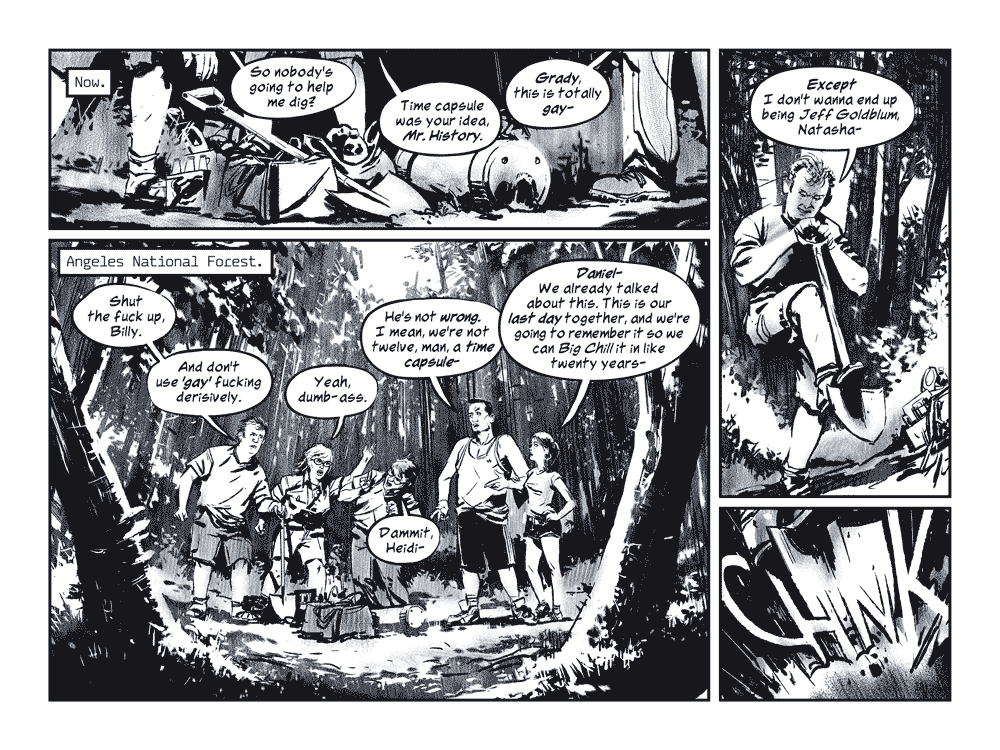
Fialkov: Well, they’re just at the end of college, which, I think does two things. First, it’s a huge transition for your life. You’re really still a teenager for all intents and purposes. You have moral responsibilities, maybe, but that’s about it. It’s the last gasp of being, y’know, who you were. And, I think most of us at 20 or 21 have a sense of who we’re going to be, and we’re all completely and utterly wrong.
Kotaku: Let’s get a list of your all-time favourite time travel stories. Did you jump into the genre while cooking up The Bunker or stay away to try and avoiding rehashing stuff you’d read?
Fialkov: Well, I’m a HUGE Doctor Who nerd. I’ve been watching it since I was a kid, and am simply crazy for it. I also happen to think that Back to the Future is one of the best pieces of popcorn cinema ever made. I love Wells’ The Time Machine, and of course Primer is a masterpiece.
I’m actually kind of flabbergasted it’s taken me this long to get to doing a book about time travel. I’ve always loved to play with narrative timelines, and, it makes sense to use it as a device.
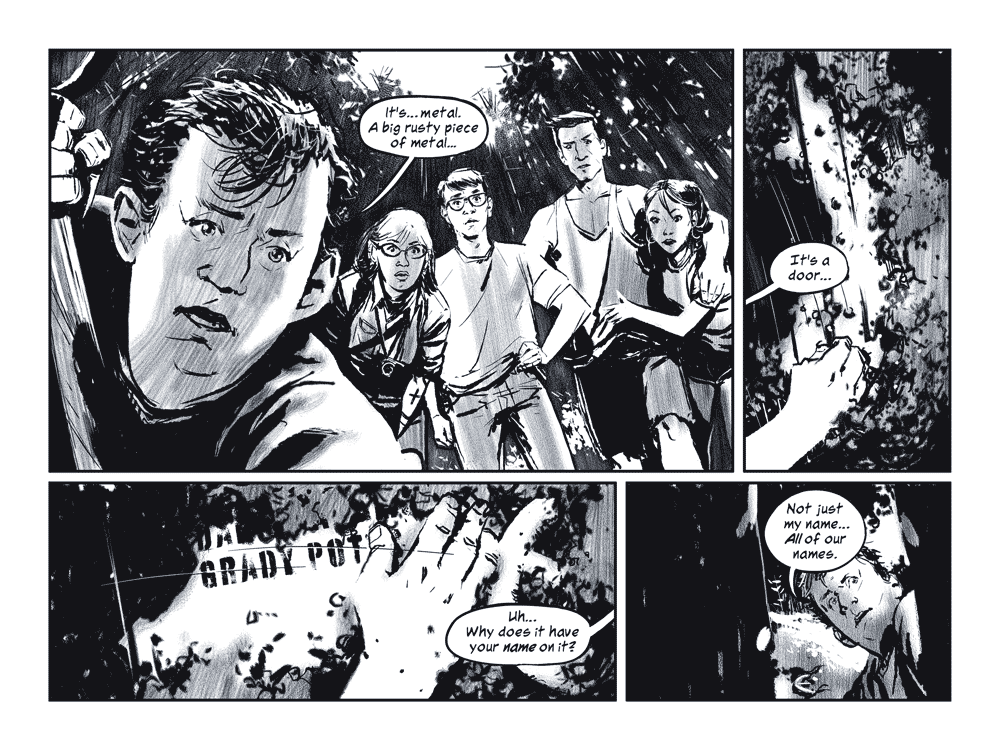
Fialkov: I think that you have to commit to either the future is fixed or the future can change. A lot of time people try to mix the two, and then you end up with confusion. All the time travel movies that stick with us are the ones where they’ve chosen and they deliver on that choice.
Kotaku: What was the most fun thing to imagine in the systemic breakdown of your near-future apocalypse?
Fialkov: I loved doing the extrapolation research. So you start by looking at all the conspiracy theorists and whack job scientists, and the one thing that came up a lot is ‘they’re putting something in our food. The chemicals are changing us, bio-engineering is ruining our eco-system.’ And, then, you just sort of move forward from there. So finding ways to have our characters do something with a net positive effect (feed the world) that ends up undoing the world, is for me, sort of perfect paradox building.
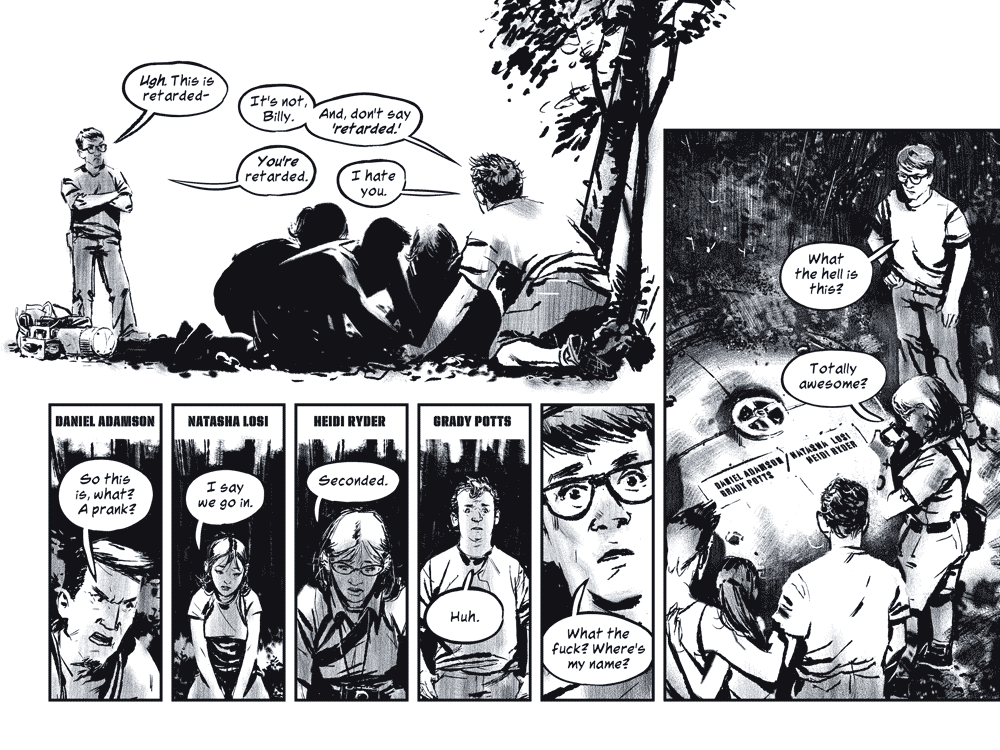
Fialkov: Be your own captain. The sooner you steer your own ship, the sooner you can get to your destination. That’s the lesson of the current era of comics, I think.
Kotaku: Your work tends to focus on people dealing with the fallout after things they believe about themselves or the world aren’t true. Is that an intentional through-line or something that happens subconsciously? What about that crossroads moment appeals to you as a writer?
Fialkov: Well, I find I learn things about myself that I, either didn’t know, or usually, really don’t like, on a daily basis. So almost everything comes from that place. Echoes, as a book, was me realising I was turning into my dad, with all the good and bad that it brings. Tumour was a book about the day I realised I’m not going to live forever in a very concrete way. Hell, even Hunger, while it’s a big goofy, fun event book at Marvel, it’s really about me realising that I’m writing bigger books with a bigger audience, and that’s a much bigger responsibility than I ever had before. Maybe that’s ego, I don’t know, but, I feel like these are all feelings everybody has, and, that’s part of what has seemed to resonate with people.
Kotaku: What was the worst part about having to say goodbye to the characters of I, Vampire? What was your proudest accomplishment with regard to your time on that book?
Fialkov: I was sort of at peace with it going away, honestly. I would’ve liked a full year to do the last story properly, but, by the end, I’d said all I had to say with them, and I wasn’t really in a place where I had a lot more to do. Probably, in terms of proudest, I’m certainly the least known writer out of that clique of young guys doing great books at DC, and, consequently had a lot more oversight than a lot of other folks… But, in spite of the boot coming down frequently on me, I think we put out a pretty good book.
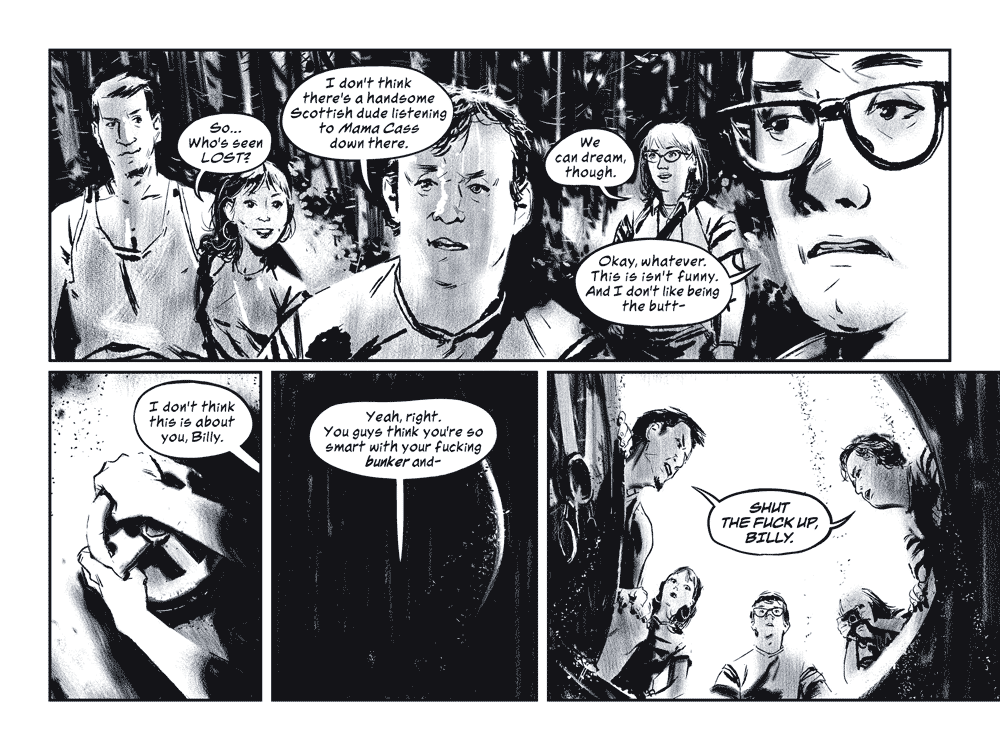
Fialkov: A lot of it comes from pride. I’m glad to say there’s only a handful of books out there in the world with my name on them that I’m not proud of. I try and keep that attitude with every book. I want every book to be the best it can be, and to really float above what people think comics can do. It’s exhausting, and upsetting, and leads to me being seen as a pain in the arse (at least at DC), but, I think the quality of the books should speak for themselves.
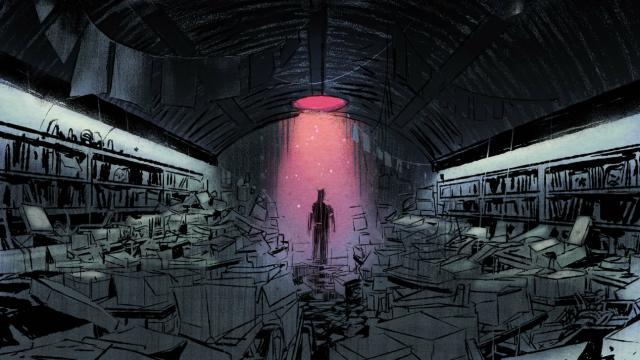
Comments
3 responses to “What Happens When You Find Out Your Older Self Kills The World”
I would say high fives are deserved for future me….life long dream fulfilled right there *manly tears*
haha, yes!
Sucks to be billy…